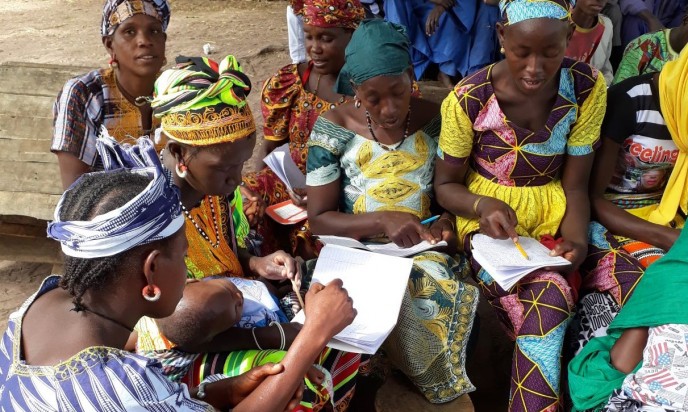UNESCO Institute for Lifelong LearningMandate
UNESCO Institute for Lifelong Learning (UIL), located in Hamburg, Germany, is one of UNESCO’s key education-related institutes and is the only organizational unit in the UN family that holds a global mandate for lifelong learning. Taking a holistic and integrated, inter-sectoral and cross-sectoral approach to lifelong learning as the guiding paradigm for 21st century education, UIL promotes and supports lifelong learning with a focus on adult learning, continuing education, literacy and non-formal basic education. Its activities place particular emphasis on furthering educational equity for disadvantaged groups and in the countries most afflicted by poverty and conflict.
It was UNESCO’s commitment to post-war Germany, expressed during its 5th General Conference in Florence in June 1950, which led to the creation of the UNESCO Institute for Education (UIE) along with two other Institutes for Youth and Social Sciences, neither of which exist anymore. UIE was intended as a vehicle to promote human rights and international understanding. The first meeting of the Governing Board was held from 17 to 19 June 1951 in Wiesbaden, Germany, and was attended by Maria Montessori and Jean Piaget. During that meeting, the Governing Board members drafted the statutes and appointed Professor Walther Merck, Chair of Comparative Education at the University of Hamburg, as Director.
Early years
In its early years, UIE’s work covered a wide range of topics, from pre-school to adult education, and from formal to non-formal education. However, the Institute’s very first international seminar, ‘Adult Education as a Means of Developing and Strengthening Social and Political Responsibility’, already signalled its core task: adult education. In its early years, UIE contributed greatly to international understanding among nations, offering people who otherwise had few opportunities to meet each other a platform to share ideas. The forerunner of all international achievement studies, the International Evaluation of Educational Achievement (IEA), was carried out at UIE between 1959 and 1961.
Whereas the first thirteen years of UIE’s work focused on Europe, the Institute redirected its efforts to developing countries following the UNESCO General Conference’s decision in 1965 that UIE’s Governing Board should include representatives from all world regions. This shift became fully operational in the 1980s when UIE launched its global activities on post-literacy and continuing education.
With the publication of the report Learning to be (also known as the ‘Faure Report’), lifelong education became the focus of the Institute’s work. Publications on the concept, content and evaluation of lifelong education were brought out in the landmark series ‘Advances in Lifelong Education’. UIE was the first institution to address literacy and functional illiteracy in industrialized countries.
Commitment to adult learning and non-formal education
The conceptualization and organization of the Fifth International Conference on Adult Education (CONFINTEA V), held in Hamburg in 1997, was a major achievement for UIE. CONFINTEA V marked a turning point in the global recognition of and commitment to adult learning and non-formal education. CONFINTEA VI, held in Brazil in 2009, built on this holistic understanding of adult learning and non-formal education within a life-wide and lifelong learning perspective and identified concrete measures for translating this vision into action.
In 2006, the Institute was transformed from a foundation under German civil law into a fully fledged international UNESCO Institute. A host country agreement was negotiated between the German government, UNESCO and the Free and Hanseatic City of Hamburg. The City now provides the Institute with its premises at the historic Albert Ballin Villa at Feldbrunnenstrasse 58. The change of legal status was preceded by a name change to UNESCO Institute for Lifelong Learning in 2006, reflecting the Institute’s long-standing focus on adult learning as well as out-of-school and non-formal education within a lifelong learning perspective.


